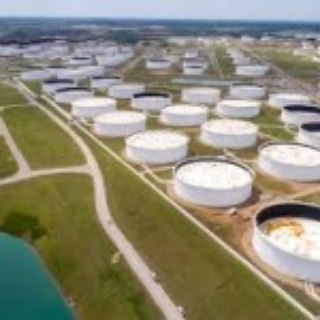
Nigeria’s crude oil reserves declined by about 600 million barrels on the back of reducing investments in the last few years, industry data on the matter has revealed.
Information from the British Petroleum (BP) Statistical Review, 2021 indicated that between 2017 and 2020, a three year period, Nigeria’s reserves did not grow, but rather fell from 37.5 billion barrels to 36.9 billion barrels in 2020.
But to resolve the issue, the new Petroleum Industry Act (PIA) has earmarked 30 per cent of profit oil and profit gas from the Nigerian National Petroleum Corporation (NNPC) exploration services, in a bid to beef up the country’s reserves.
With deteriorating facilities Nigeria was in July and August unable to meet the quota allocated to it by the Organisation of Petroleum Exporting Countries
A report by Mordor, a market intelligence and consulting services firm, said that the COVID-19 pandemic had significantly hampered the growth of the market in Nigeria, mainly due to global oil and gas demand contraction and global economic slowdown.
“The outbreak of COVID-19 led to the crude oil price crash of April 2020, leading to a significant reduction in Capital Expenditure (CAPEX) spending by oil and gas companies globally.
“The country’s national oil and gas companies were already struggling with liquidity and cash shortage, and due to the outbreak of COVID-19, the situation has further deteriorated, “Mordor said.
“However, some of the major factors driving the market include increasing investments in the upstream sector and the development of large-scale and modular refineries in the country.
“Oil and gas production had been hampered in Nigeria in the past few years due to the attack on oil and gas infrastructure by militants. Furthermore, oil theft has been one of the major issues faced by the oil and gas market in Nigeria, which resulted in huge losses to operating companies in the country.
“Such factors are expected to have a negative impact on the market growth during the forecast period,” it said in the report tagged “Nigeria Oil and Gas Market: Growth, Trends, COVID-19 Impact and Forecasts,” covering between 2021-2026.
However, it stressed that Nigeria is on the edge of altering refined products’ supply dynamics in the region with the help of the upcoming Dangote Refinery, and it is expected to become the regional refining hub in the coming years.
It added that the shift to gas is also supported by the fact that major oil reserves are likely to get dry in the coming three to four decades, hence, the oil market is considered to be one of the most vulnerable markets where natural gas has the highest potential to penetrate.
However, it noted that China National Offshore Oil Corporation mobilised a $3 billion investment, in addition to the $14 billion already spent on its existing oil and gas operations in the West African country.
“A large share of this investment goes into the operations in Nigeria. One of the most ambitious ultra-deep offshore projects is the Egina oil field in water depths between 1,400 and 1,700 meters, “it stated.
SOURCE: ThisDay


